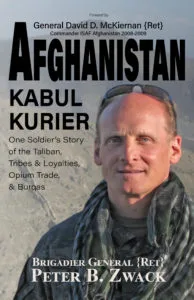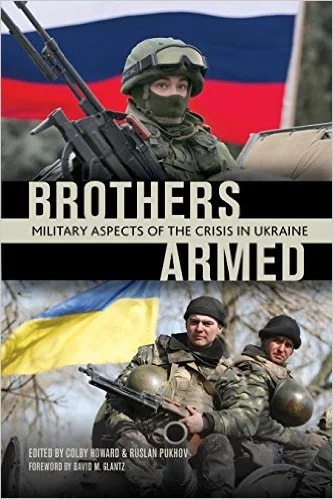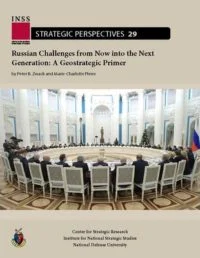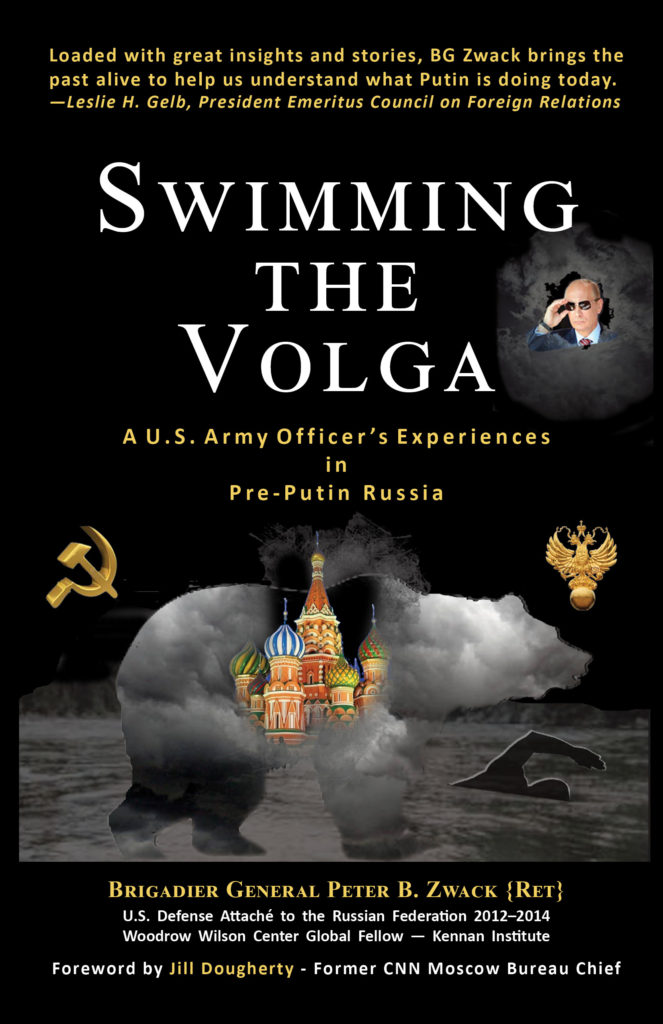Stepping back from the brink — and what’s next — in Iran
Iran inadvertently created an opening for Washington and Tehran to step back from the brink of all-out war by not killing U.S. personnel in its retaliatory missile strike Tuesday night into two U.S. and coalition populated Iraqi airbases. Tehran’s belated admission Friday of accidentally shooting down Ukraine Air Flight 752 hours afterward near Tehran’s Imam Khomeini Airport may also have created a slender opportunity to further deescalate this still-simmering crisis, which began five days earlier when a U.S. drone strike killed the powerful Iranian chief of the IRGC Quds force, Maj. Gen. Qassem Soleimani in Baghdad.
I have no doubt that if the Iranian missile strike had killed Americans, a tremendous response from U.S. military assets would have struck Iranian naval, air and missile units deployed in range of the Gulf region and possibly even its nuclear infrastructure. Aghast, the world would have been horrified but would have stepped back, with more than a few nations quietly supportive of the action.
Both sides appear to have stepped back to avoid a nasty and regionally dangerous shooting war — but for how long?
With Soleimani gone, Iranian “honor” at least temporarily assuaged by the missile attack and while Iranian leaders and people grapple with the shocking reality of the airliner’s destruction, is there any way to reap a long-term benefit from this step back?
Can mutual equities be addressed while excising primal Iranian fears of U.S.-led regime change efforts? Or are tensions so high, worldviews so different, issues so complex, and hostility so deep that real reconciliation — that would have to involve Iran’s Sunni neighbors and Israel — impossible?
The roiling “gray zone” of undeclared asymmetric war involving cyber, proxies and terror always beckons.
Geostrategic spoiler nations such as Russia and China may prefer the U.S. and Iran to remain at loggerheads, consuming Washington’s attention and resources while inflaming domestic division and eroding Western cohesion. Thursday’s aggressive and dangerous maneuvering of a Russian warship near the USS Farragut in the North Arabian Sea portends so — and does not bode well for any substantive U.S.-Russian effort to cooperatively resolve these core issues.
Washington got it right by taking a measured approach after Iran’s missile retaliation.
Incendiary rhetoric was muted.
Many — including myself, and clearly the Iranians — thought we would strike back. This near certainty is the probable reason that Iranian air-defense, certainly on high-alert, accidentally shot down the hapless Ukrainian airliner. This horror has a dreadful symmetry with the Iranian airliner that the Aegis missile cruiser USS Vincennes accidentally shot down during the 1988 Gulf crisis.
When tensions are fraught, communications near nil and threat perceptions high, this is when the “laws of unintended consequences” are most dangerous, and unfortunately — and almost invariably — innocent lives are lost.
What would I want to see happen next?
My Pollyanna-ish side desires — somehow — a bipartisan Washington effort backed by allies, regional partners and even Russia and China to enter into comprehensive negotiations with Tehran to address the core drivers of this major societal and perception-driven conflict.
If this administration truly wants to leave an enduring legacy, it would strive to broker some type of long-lasting agreement to bring Iran back into the mainstream community of nations.
Tehran as a prerequisite would have to curtail its attempts to destabilize its neighbors and to militantly expand Shiite influence through the region. Such a negotiation would be even broader in scope than the hard-negotiated multinational JCPOA (Iran nuclear agreement) from which the U.S. unilaterally withdrew in 2018.
Any diplomatic breakthrough with Tehran — as unlikely as it may be — would dwarf in significance the stumbling negotiations with manipulative and petulant Pyongyang.
Iran and its proud Persian legacy is too large, too regionally influential, too energy rich and has too large a diaspora both ethnically and religiously, to indefinitely isolate and sanction without the support of most of the global community. Ideally, a forward-thinking Russia with its recently gained regional political capital would even co-partner this project with the U.S. and other key nations — as occurred in the JCPOA — and not undermine it. A chaotic and unresolved Middle East will likely bring major internal problems for Moscow in future generations.
A possible template for any rapprochement could be the Camp David breakthrough in 1978 between seemingly irreconcilable Egypt and Israel that has netted a viable though edgy peace between Cairo and Jerusalem for the past 42 years.
To do even an iota of any of this would mandate some type of credible “hot-line” mechanism between Tehran, Washington and other key players to deconflict the inevitable incidents and attacks from proxies, splinter groups and lone wolves that would work at all costs to destabilize any improved, less confrontational relationship.
This administration’s international track record on agreements and treaties could hobble any such effort, as partners might wonder if Washington would be a reliable signatory to any multinational agreement.
Also, our own divided body politic — absorbed by impeachment and the looming election cycle — could be our own worst obstacle. Our partisan divide has, sadly, become a strategic issue.
What I believe actually will happen:
My 38 years of military intelligence, analysis and deployments into difficult places takes my expectations to a darker sphere.
The entire Middle East is on fire in varying degrees. Twenty years of U.S. “boots-on-the-ground” blood and treasure in the Middle East has netted little in regional stability beyond propping our increasingly assertive Israeli ally and ensuring the viability of states and sea lanes essential to critical flow of oil and trade.
The menace of ISIS — which ironically Washington, Moscow, Damascus, Baghdad, Tehran, Jerusalem and others have all combatted and severely bloodied — failed to pull the region together. Its embers risk burning hot again as regional infighting distracts from its existential threat.
Iran will be perpetually distrusted and confronted until it convincingly renounces — by action and verification — its redeclared nuclear program.
Meanwhile, despite Soleimani’s death, his network of destabilizing, mostly Shiite proxies and militias — with the Iraqi Popular Mobilization Units (PMU) most notable — continue fighting and subverting regionally, from Lebanon to Yemen.
And finally, the greater Arab-Israel-Iran conflict, with Palestine as its apex issue, remains hot and intractable. Tehran renouncing its stated position that Israel has no right to exist would be a critical first step toward any regional cooling off, however unlikely that may be. In turn, Israel must cease its expansion on the West Bank.
Thus, it’s likely that familiar tensions, actions and reactions will continue to plague the region, though the recent U.S. and Iranian temperance has created some breathing space.
Yet … there is a glimmer.
If anything remotely positive could come from the death of the 163 innocents in the air over Tehran, it would be a realization that all has gone too far and must stop.
Iran broke from its indefensible denials and admitted — and conditionally apologized for — the accident, while blaming the U.S. and the Soleimani strike for initiating the dangerous chain of events.
Maybe somehow, the shock, embarrassment and remorse of this accident could jar calcified regime thinking in Tehran.
It likely will sensitize Iran’s more moderate mainstream, which — after a violent regime crackdown in late 2019 — rallied around Iran’s flag following Soleimani’s death. Literally as I write, Iran’s momentary national unity may be eroding as crowds in several Iranian cities demonstrate in apparent anger with the regime’s clumsy handling of the commercial airplane shootdown — in which 82 Iranian citizens perished. The unrest may spread, making the overall situation even more unstable and unpredictable.
Whatever happens, any sense of genuine Iranian contrition could increase Tehran’s credibility both domestically and on the global stage. That — coupled with a firm but non-bellicose American posture — could go far in calming tensions and opening possibilities during this dangerous period.
While I doubt any of this will transpire, I very much want to be contradicted and surprised.







